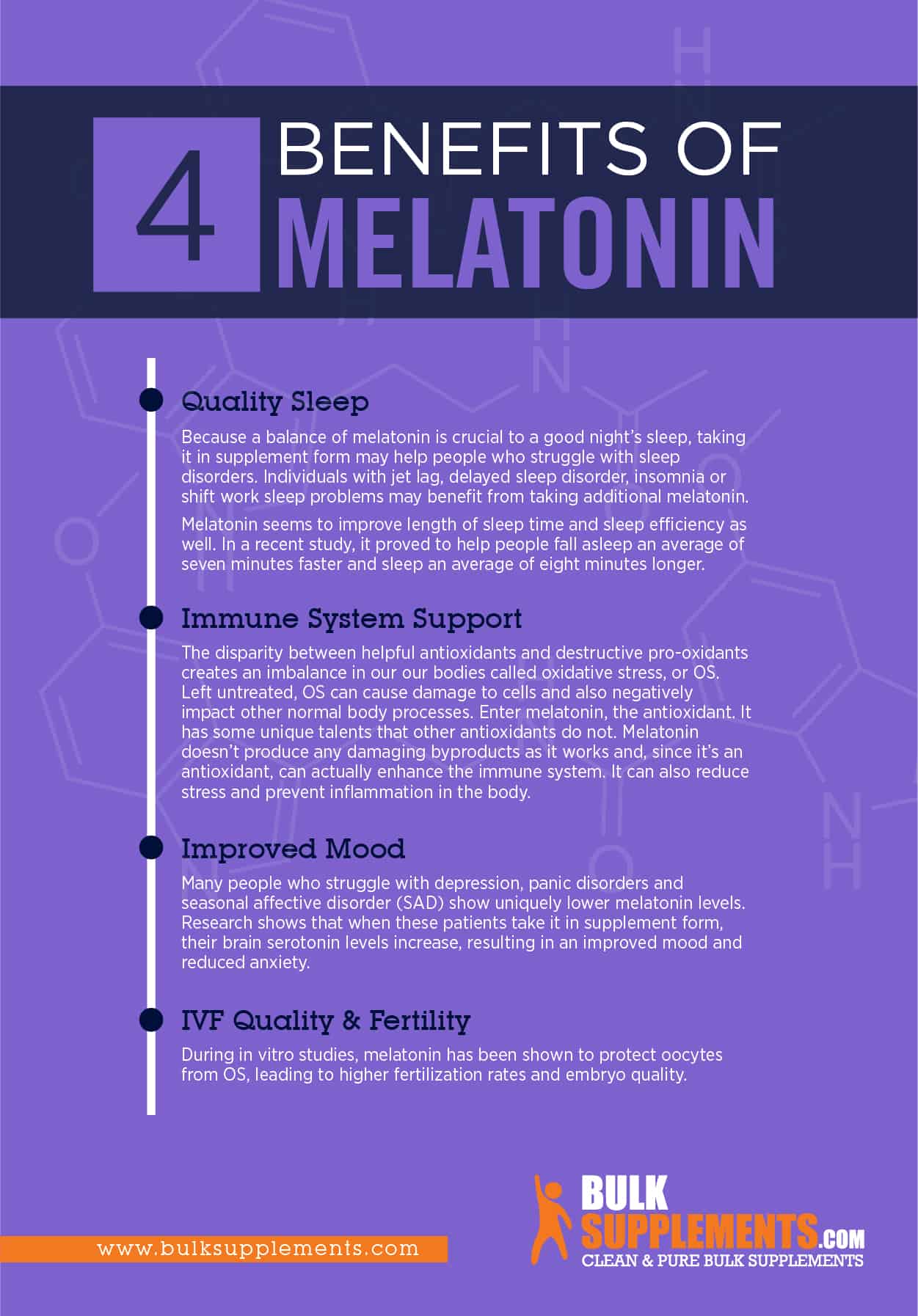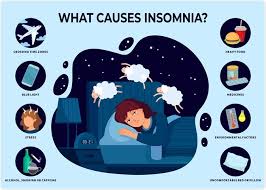If you’re seeking effective ways to manage anxiety, hypnosis can be a valuable tool worth exploring. With its ability to access the subconscious mind and address deep-rooted beliefs and patterns, hypnosis has gained recognition as a potential solution for anxiety relief. If you’re wondering, “Where can I find hypnosis for anxiety near me?” this article will provide you with some insights.
Hypnosis is a therapeutic technique that induces a state of focused attention and relaxation. During a hypnotherapy session, a trained professional guides you into this state, allowing your mind to become more receptive to positive suggestions and new perspectives. It is important to note that hypnosis does not involve losing control or being manipulated; instead, it empowers individuals to tap into their own inner resources and make positive changes.
When it comes to finding hypnosis for anxiety in your local area, there are several steps you can take:
- Research local practitioners: Start by conducting an online search or asking for recommendations from friends, family, or healthcare professionals. Look for certified hypnotherapists who specialize in anxiety treatment.
- Check credentials: Verify the qualifications and certifications of the practitioners you come across. Ensure they have received proper training from reputable institutions.
- Read reviews and testimonials: Look for feedback from previous clients regarding their experiences with the practitioner. This can give you an idea of their effectiveness in addressing anxiety-related concerns.
- Contact potential practitioners: Reach out to the selected practitioners and ask questions about their approach to treating anxiety through hypnosis. Inquire about their experience, success rates, and any specific techniques they employ.
- Schedule consultations: Arrange initial consultations with one or more practitioners to discuss your specific needs and determine if they are the right fit for you. This will also give you an opportunity to gauge their professionalism and establish rapport.
During your consultation(s), be prepared to discuss your anxiety symptoms, triggers, and any previous treatments you have tried. This will help the hypnotherapist tailor their approach to your unique situation.
It’s important to remember that hypnosis is not a quick fix and may require multiple sessions for optimal results. The number of sessions needed varies depending on the individual and the severity of their anxiety. A professional hypnotherapist will work with you to develop a personalized treatment plan.
In addition to seeking local hypnotherapy services, it’s worth exploring online options as well. Many qualified hypnotherapists offer virtual sessions, allowing you to receive anxiety relief from the comfort of your own home.
Remember, hypnosis for anxiety is most effective when used in conjunction with other therapeutic approaches and lifestyle modifications. It complements techniques such as cognitive-behavioral therapy (CBT), mindfulness, and self-care practices.
If you’re ready to take control of your anxiety and explore the potential benefits of hypnosis, don’t hesitate to begin your search for a reputable practitioner near you. With commitment and the right guidance, you can find relief from anxiety and embark on a journey towards improved well-being.
7 Essential Tips for Finding Effective Hypnosis for Anxiety Near You
- Make sure to find a qualified hypnotherapist near you with experience in treating anxiety.
- Research the different types of hypnosis and decide which one may be best for your needs.
- Ask your doctor or therapist for recommendations on reputable hypnotherapists in your area.
- Don’t be afraid to ask questions about the process, techniques, and qualifications of any potential hypnotist before making a decision.
- Create a comfortable environment for yourself before your session begins, so that you can relax and feel safe during the session.
- Be open-minded and willing to explore new ideas during the session; this will help you get the most out of it!
- Follow up with your hypnotherapist after each session to discuss how it went and what changes you have noticed since then; this will help keep you on track towards managing your anxiety better!
Make sure to find a qualified hypnotherapist near you with experience in treating anxiety.
When seeking hypnosis for anxiety near you, it is crucial to find a qualified hypnotherapist with experience in treating anxiety. The effectiveness of hypnosis greatly depends on the expertise and knowledge of the practitioner.
Anxiety is a complex condition that requires a skilled and experienced professional who understands its nuances. By choosing a hypnotherapist with specific experience in treating anxiety, you can ensure that you receive the most appropriate and effective care.
To find a qualified hypnotherapist near you, consider the following steps:
- Research: Conduct thorough research online or seek recommendations from trusted sources such as friends, family, or healthcare professionals. Look for practitioners who specialize in anxiety treatment and have relevant certifications or credentials.
- Check qualifications: Verify the qualifications and certifications of potential hypnotherapists. Ensure they have received proper training from reputable institutions and hold relevant licenses or memberships in professional organizations.
- Read reviews and testimonials: Look for feedback from previous clients regarding their experiences with the hypnotherapist in treating anxiety. Positive reviews and testimonials can provide valuable insights into the practitioner’s expertise and success rates.
- Consultation: Schedule an initial consultation with the hypnotherapist to discuss your specific needs and concerns related to anxiety. Use this opportunity to ask about their experience in treating anxiety, their approach to therapy, and any specific techniques they utilize.
During the consultation, pay attention to how comfortable you feel interacting with the hypnotherapist. Establishing rapport is essential for effective therapy, so trust your instincts when deciding if they are the right fit for you.
Remember that finding a qualified hypnotherapist near you is an investment in your well-being. It is worth taking the time to research and choose someone who has expertise in addressing anxiety through hypnosis.
By selecting an experienced professional, you can increase your chances of achieving positive outcomes in managing your anxiety symptoms effectively. Don’t hesitate to prioritize your mental health and seek the guidance of a qualified hypnotherapist to embark on your journey towards anxiety relief.
Research the different types of hypnosis and decide which one may be best for your needs.
When it comes to finding hypnosis for anxiety near you, one important step is to research the different types of hypnosis available and determine which one may be best suited to your needs. Understanding the various approaches can help you make an informed decision and find a practitioner who aligns with your preferences.
Here are a few common types of hypnosis:
- Traditional Hypnosis: This is the classic form of hypnosis that most people are familiar with. It involves inducing a relaxed state and providing positive suggestions to address anxiety and promote well-being.
- Ericksonian Hypnosis: Named after renowned psychiatrist Milton H. Erickson, this approach utilizes indirect suggestions, metaphors, and storytelling to bypass the conscious mind and access the subconscious. It can be particularly effective for individuals who may be resistant to traditional forms of hypnosis.
- Cognitive Behavioral Hypnotherapy (CBH): Combining elements of cognitive-behavioral therapy (CBT) with hypnosis, CBH focuses on identifying and modifying negative thought patterns and behaviors associated with anxiety. This approach aims to reframe thoughts and develop healthier coping mechanisms.
- Neuro-Linguistic Programming (NLP): NLP explores how language and communication impact our thoughts, feelings, and behaviors. It incorporates techniques such as visualization, anchoring positive emotions, and reprogramming limiting beliefs.
- Solution-Focused Hypnotherapy: This approach emphasizes setting goals, envisioning desired outcomes, and focusing on solutions rather than dwelling on problems or past experiences.
By researching these different types of hypnosis, you can gain insights into their methodologies, philosophies, and potential benefits. Consider your personal preferences, comfort level with each approach, and any specific concerns or goals you have related to anxiety relief.
It’s worth noting that many practitioners may incorporate elements from multiple types of hypnosis in their practice. They may tailor their approach based on your individual needs or combine techniques for a more comprehensive treatment plan.
When searching for hypnosis for anxiety near you, look for practitioners who specialize in the specific type(s) of hypnosis that resonate with you. Read reviews and testimonials to gain a better understanding of their expertise and success in helping individuals with anxiety-related concerns.
Remember, finding the right type of hypnosis is a personal decision. Take your time to explore and learn about the different approaches, and trust your instincts when selecting a practitioner. With dedication and the right match, hypnosis can be a valuable tool in managing anxiety and promoting overall well-being.
Ask your doctor or therapist for recommendations on reputable hypnotherapists in your area.
When it comes to finding reputable hypnotherapists for anxiety relief in your local area, one valuable tip is to ask your doctor or therapist for recommendations. These healthcare professionals often have a network of trusted colleagues and can provide valuable insights and referrals.
Your doctor or therapist is familiar with your medical history, including any existing anxiety disorders or related conditions. They have a comprehensive understanding of your needs and can offer guidance on finding the right hypnotherapist who specializes in anxiety treatment.
By consulting with your doctor or therapist, you gain access to their expertise and experience in the field. They can provide insights into the effectiveness of hypnosis as a complementary therapy for anxiety and may offer specific recommendations based on their knowledge of local practitioners.
In addition to recommendations, your doctor or therapist can also provide valuable information about the integration of hypnosis into your overall treatment plan. They can help you understand how hypnotherapy aligns with other therapies you may be receiving, such as medication or cognitive-behavioral therapy (CBT).
Remember, open communication with your healthcare provider is crucial. Be sure to discuss any concerns or questions you may have about hypnosis for anxiety. Your doctor or therapist is there to support you and guide you towards the most effective treatment options available.
By seeking recommendations from trusted healthcare professionals, you increase your chances of finding reputable hypnotherapists who are experienced in treating anxiety. This collaborative approach ensures that you receive comprehensive care that addresses all aspects of your well-being.
So, if you’re looking for reliable hypnotherapists near you, don’t hesitate to reach out to your doctor or therapist. Their recommendations can be an invaluable resource on your journey towards managing anxiety and achieving greater peace of mind.
Don’t be afraid to ask questions about the process, techniques, and qualifications of any potential hypnotist before making a decision.
When it comes to finding hypnosis for anxiety near you, it’s crucial not to be afraid of asking questions. Before making a decision, take the time to inquire about the process, techniques, and qualifications of any potential hypnotist. This will ensure that you find a professional who meets your needs and can effectively address your anxiety concerns.
Asking questions allows you to gather important information and make an informed choice. Here are some key areas to focus on when speaking with potential hypnotists:
- Process: Understand how the hypnosis sessions will be conducted. Inquire about the duration of each session, the number of sessions recommended, and the overall treatment plan. This will give you an idea of what to expect and help you determine if it aligns with your preferences and availability.
- Techniques: Ask about the specific techniques the hypnotist employs for anxiety treatment. Different practitioners may utilize various approaches such as suggestion therapy, regression therapy, or neuro-linguistic programming (NLP). By understanding their techniques, you can assess whether they resonate with you and have a track record of success in treating anxiety.
- Qualifications: It’s essential to verify the qualifications and certifications of any potential hypnotist. Inquire about their training background, accreditation from reputable institutions, and membership in professional organizations related to hypnotherapy. A qualified hypnotist should be transparent about their credentials and happy to provide this information.
- Experience: Inquire about their experience in working with clients who have anxiety or similar concerns. Ask how long they have been practicing hypnotherapy and if they have encountered cases similar to yours. An experienced hypnotist will possess a deeper understanding of anxiety-related issues and may have developed effective strategies for addressing them.
- Success Stories: Request testimonials or success stories from previous clients who sought hypnosis for anxiety relief with this practitioner. Hearing about others’ positive experiences can give you confidence in their abilities and provide insight into their approach and effectiveness.
Remember, a professional hypnotist will welcome your questions and provide clear and honest answers. They should demonstrate patience, empathy, and a genuine interest in helping you overcome anxiety. If you feel uncomfortable or uncertain about any aspect of the process, it’s perfectly acceptable to seek clarification or consider alternative options.
By asking questions, you empower yourself to make an informed decision regarding hypnosis for anxiety near you. This ensures that you find a qualified and trustworthy professional who can guide you towards effective anxiety relief through hypnotherapy. Don’t hesitate to reach out, gather information, and embark on your journey towards a calmer and more balanced state of mind.
Create a comfortable environment for yourself before your session begins, so that you can relax and feel safe during the session.
Creating a comfortable environment before a hypnosis session can greatly enhance your experience and help you find relief from anxiety. When you feel relaxed and safe, it becomes easier to enter a state of deep relaxation and focus during the session. Here are some tips to create a comfortable environment for yourself:
- Find a quiet and private space: Choose a room or area where you can have uninterrupted privacy. Minimize distractions by turning off your phone or any other devices that may cause disruptions.
- Set the lighting: Adjust the lighting to your preference. Some people find dimmed or soft lighting more conducive to relaxation, while others prefer natural light. Experiment with different lighting options to discover what works best for you.
- Choose comfortable seating: Select a chair, couch, or cushion that provides proper support and comfort for your body. Make sure you can maintain a relaxed posture throughout the session.
- Create ambiance: Consider using calming elements such as scented candles, essential oils, or soothing background music to create a serene atmosphere. These sensory cues can help relax your mind and set the mood for relaxation.
- Eliminate potential disturbances: Inform others in your household about your session and kindly request not to be disturbed during that time. Ensure that pets are taken care of and won’t interrupt your session.
- Prepare props if needed: If there are any items that help you feel more at ease, such as a cozy blanket or favorite pillow, have them nearby during the session.
- Practice deep breathing exercises: Before the session begins, take a few moments to practice deep breathing exercises to calm your body and mind further. Inhale deeply through your nose, hold for a few seconds, then exhale slowly through your mouth.
Remember that creating a comfortable environment is about personal preference and what helps you feel most at ease. By taking these steps to set up an environment conducive to relaxation, you can maximize the benefits of your hypnosis session for anxiety.
Be open-minded and willing to explore new ideas during the session; this will help you get the most out of it!
When it comes to seeking hypnosis for anxiety near you, being open-minded and willing to explore new ideas during your sessions can greatly enhance the benefits you receive. Hypnosis is a powerful tool that works with your subconscious mind, allowing you to tap into your inner resources and make positive changes. By approaching your sessions with an open mind, you create a fertile ground for transformation and growth.
During a hypnotherapy session, a trained professional will guide you into a state of deep relaxation and focused attention. In this state, your mind becomes more receptive to suggestions and new perspectives. It’s important to remember that hypnosis is not about losing control or being manipulated; instead, it empowers you to harness the power of your own mind to overcome anxiety.
By embracing an open-minded attitude, you create space for new possibilities and allow yourself to let go of preconceived notions or doubts. This openness enables the hypnotherapist to work with you more effectively, tailoring their approach to address your specific needs and concerns.
Being willing to explore new ideas during your hypnosis sessions also means being receptive to different techniques or perspectives that may be offered. Your hypnotherapist may introduce visualization exercises, affirmations, or other therapeutic tools aimed at helping you manage anxiety. By embracing these techniques with an open mind, you give yourself the opportunity to discover what resonates with you and what brings about positive change.
Remember that every individual’s experience with hypnosis is unique. What works for one person may not work in the same way for another. By staying open-minded, you allow yourself the freedom to explore various approaches until you find what works best for you.
In addition to being open-minded during sessions, it’s also beneficial to maintain an open mind outside of therapy. This means being receptive to incorporating new coping strategies or lifestyle changes suggested by your hypnotherapist into your daily routine. These may include practicing mindfulness exercises, adopting healthier sleep habits, or engaging in self-care activities that promote overall well-being.
So, if you’re considering hypnosis for anxiety near you, remember to approach your sessions with an open mind and a willingness to explore new ideas. By doing so, you can maximize the potential benefits of hypnotherapy and embark on a transformative journey towards managing your anxiety more effectively.
Follow up with your hypnotherapist after each session to discuss how it went and what changes you have noticed since then; this will help keep you on track towards managing your anxiety better!
When it comes to managing anxiety through hypnosis, following up with your hypnotherapist after each session is a valuable practice that can enhance your progress. By discussing how the session went and sharing any changes or improvements you have noticed since then, you can stay on track towards effectively managing your anxiety.
Following up with your hypnotherapist serves several purposes. Firstly, it allows you to reflect on the session and express any concerns or questions that may have arisen. Your hypnotherapist can address these issues, providing clarity and reassurance to help you understand the process better.
Additionally, discussing the changes you have noticed since the last session helps both you and your hypnotherapist gauge your progress. It provides an opportunity to celebrate any positive shifts or breakthroughs experienced during the interval between sessions. Sharing these improvements reinforces your motivation and encourages further growth.
Moreover, regular follow-ups enable your hypnotherapist to assess the effectiveness of their approach and make necessary adjustments if needed. They can tailor future sessions based on your feedback, ensuring that the treatment remains personalized and aligned with your specific needs.
To make the most of your follow-up discussions:
- Take note of any noticeable changes: Pay attention to shifts in your thoughts, emotions, behaviors, or physical sensations related to anxiety since the previous session. This will help you provide specific examples during the follow-up conversation.
- Be honest and open: Share both positive and challenging experiences honestly with your hypnotherapist. Open communication allows them to gain a deeper understanding of your progress and challenges, enabling them to provide appropriate guidance.
- Ask questions: If there’s anything you’re unsure about or curious about regarding the session or its effects, don’t hesitate to seek clarification from your hypnotherapist. They are there to support you throughout this journey.
Remember that managing anxiety through hypnosis is a process that requires time and commitment. Regular follow-ups with your hypnotherapist can help you stay accountable, motivated, and on track towards achieving your goals.
In conclusion, following up with your hypnotherapist after each session is a beneficial practice for managing anxiety. It allows for reflection, progress assessment, and personalized adjustments to ensure that you receive the most effective treatment possible. By actively participating in these discussions, you empower yourself to take control of your anxiety and work towards a more balanced and fulfilling life.




